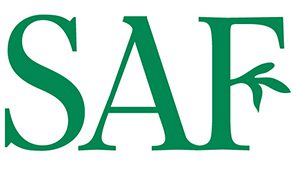Into the Fields
Where can I read more to learn about the experience of ITF interns?
Check out the SAF Field Notes blog to read more about ITF intern experiences.
Watch the Bittersweet Harvest documentary about the ITF program to get a glimpse of a day in the life of an intern.
Contact [email protected] for more information.
How many ITF applicants are accepted every year?
Each summer, Student Action with Farmworkers places approximately 25 college students with organizations that serve, organize, or advocate for farmworker justice. SAF interns come from diverse backgrounds and about half are from farmworker families.
Can I really write my essay in spanglish?
Yes! You can write your essay in Spanish, English or a combination. With your essay, we want to get a sense of who you are, your experience, and your motivations for wanting to participate in the internship. If a mix of Spanish and English is the best way to represent who you are, please feel free to showcase it! We do not preference one language over another.
When will applicants be notified of selection and placement?
Applicants will be notified of selection results by March 25, 2024. Accepted applicants will have until March 29 to accept a position or be placed on a waiting list
How is the stipend paid to interns?
Interns will receive a stipend of $4250. SAF is responsible for paying each intern. Interns receive their stipend in three installments, one at the orientation, one at mid-retreat, and one at final retreat.
How does the fundraising work?
SAF requests that each intern fundraises at least $750. Students will join a fundraising training with staff who will explain SAF’s grassroots fundraising model and will receive a page on which to host their online fundraising.
Where do interns work?
Most interns live & work in rural agricultural areas in the Carolinas – we place you with an organization based on your skills & interests. All placements consist of at least 50% office work as well as some outreach to farmworkers, their children, or meat processing workers. Common placement types include:
- Legal assistance positions provide free legal assistance such as "know your rights" trainings, educational materials, translation, assisting lawyers with paperwork & research. Outreach varies but can be 1-3 times/week.
- Health agency positions provide health education (ex. pesticides, nutrition), interpretation, case management & coordinate transportation to clinics. Outreach varies but can be 2-5 times/week.
- Migrant education positions advocate for improved educational opportunities for Latinx, migrant & immigrant youth. Interns may teach ESL classes, mentor students & educate parents about graduation requirements through migrant education programs. Outreach varies but can be 1-3 times/week.
- Community organizing positions support projects that benefit the community or create awareness. Interns have organized “know your rights” trainings, assisted with community gardens, produced short documentaries about working with pesticides & developed a bike program for farmworkers. Outreach is less frequent but can be 1-2 times/week.
- Union/Labor organizing positions support field & meat processing workers as they organize their workplace for better working conditions and pay. Interns may support meat processing workers to join or form a union, file grievances against their employer, organize events, create awareness in the community about consumer boycotts and farmworker-led campaigns. Outreach is less frequent but can be 1-2 times/week.
- Lobbying/Advocacy positions engage in the legislative process and work with state-wide coalitions on key issues such as tuition equity. There are approximately 2 positions available. Outreach is limited. (Preference given to Latinxs from NC).
Where do interns live?
In most cases, SAF coordinates and pays for interns’ summer housing. Interns are responsible for paying all utility costs not included in the monthly rent. Interns can use their SAF stipend to help cover other basic living expenses.
What are the documentary and theater projects?
In addition to working full-time at a farmworker organization, SAF interns work on one of the following projects:
Documentary students will get to know a group of workers more in-depth by conducting participatory documentary projects with workers to document their lives through photography, writing, and artwork. Students and workers will reflect on the documentary work together in discussions using popular education. Check out the documentary projects from past years.
Theater students will perform a skit to initiate dialogue among farmworkers and to mobilize them to come up with solutions to the issues they face. Performances take place in labor camps in the Piedmont and eastern NC and address issues important to workers; the 2023 topics are current issues like heat stress and COVID. Read more about our theater work here.
Do I need to have legal work authorization to apply?
No. Undocumented students and students with DACA are eligible for this internship. You do not need a social security number to apply, but you will need a tax ID if you cannot provide a social security number.
